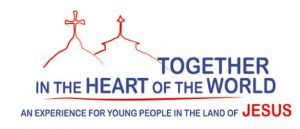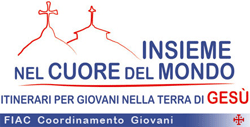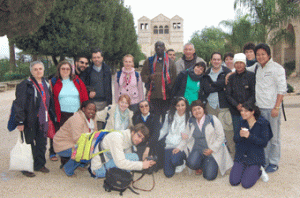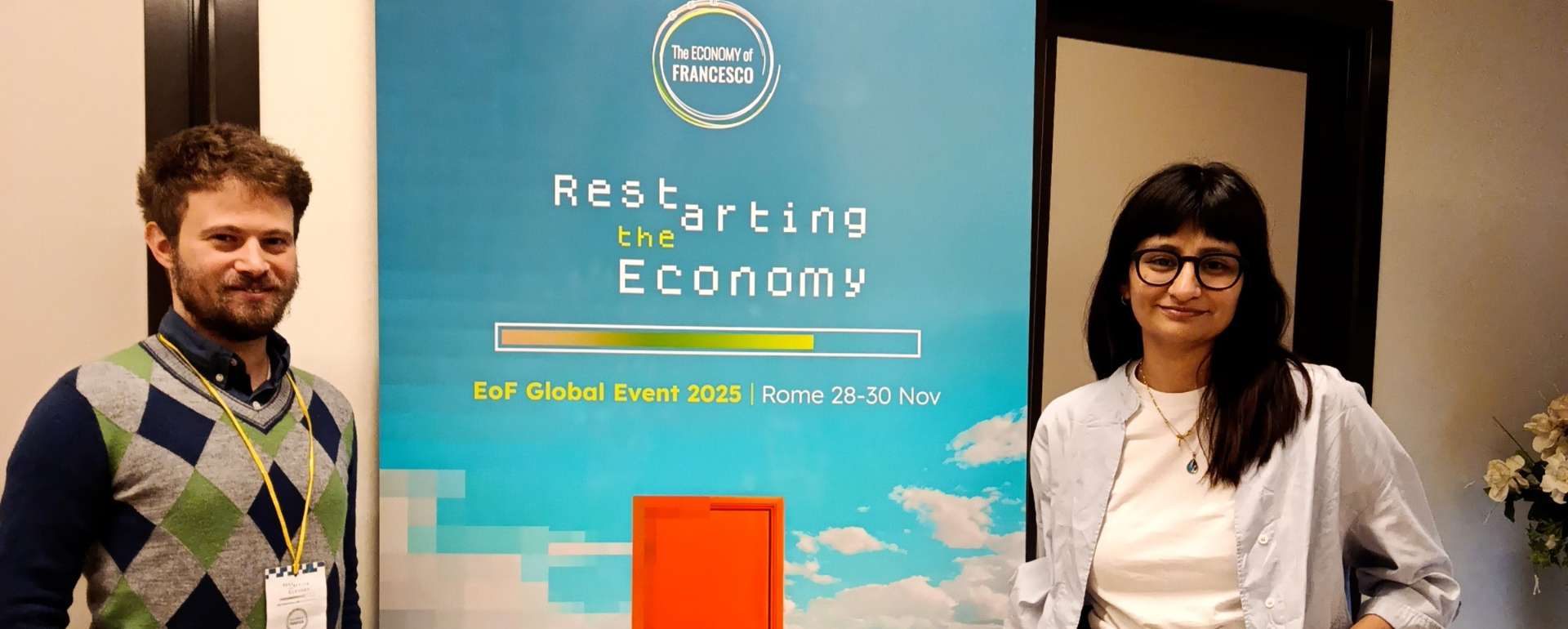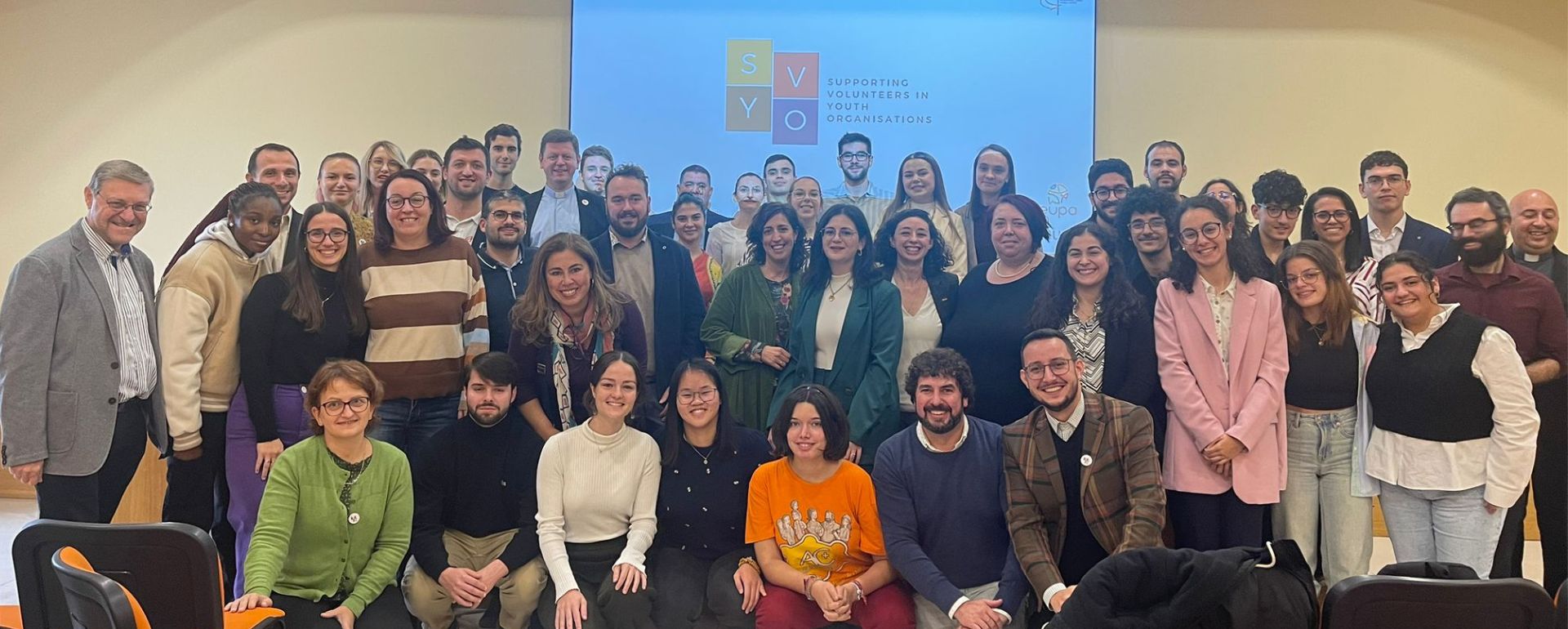PRESS RELEASE
In continuation of the Middle East Synod
ITINERARY FOR YOUTH IN THE HOLY LAND
When speaking about the conclusions reached at the Middle East Synod held last October in Rome, Fr. Peter du Brul S.J., founder of the Department for Religious Studies at the University of Bethlehem, stressed that “so far we only have a document but this document should become people’s way of life through formation, prayer and dialogue among Christians and with other religions”.
He said this during a meeting which young members of the International Forum of Catholic Action had with young people from the parish of Saint Catherine of Alessandria in Bethlehem. This was part of the residential and itinerary formation course which the International Forum of Catholic Action, in collaboration with the Latin Patriarchate of Jerusalem and the Custody of the Holy Land, have organised. The meeting with the theme: “Together in the heart of the world. A programme for youth in the land of Jesus” will come to an end on the 13th December.
The young participants asked Mgr. William Shomali, Auxiliary Bishop of the Latin Patriarchate of Jerusalem: “What contribution are all Christians expected to give after the Middle East Synod?” In short his reply was: “ Pray, visit the Holy Land and continue being in communion with us”.
“Dear Christians from Europe” – the Auxiliary Bishop of Jerusalem said -, “first of all you should pray for us so that our Lord, history’s Father and Master, may bring about the necessary changes”. We must “pray with the words of the Psalm: may there be peace in Jerusalem”. “Come on pilgrimages to the Holy Land” – Shomali appealed – , not only to visit us, but also for your own benefit”. In fact “ we will be stronger if in Europe your faith is stronger. We feel that faith in the West is waving and this weakens even us, brothers in faith. A visit to the Holy Land helps to deepen one’s faith and to strengthen it ”.
“You are already helping us a lot” – Shomali added – “through conferences at episcopal, diocesan and parish level. We cannot expect more. All we could say is: Thank you for the solidarity you have shown towards Christians in the Holy Land during the difficult years of the occupation. I know that you will go on doing this most heartily, in fact, your visit is enough evidence of the solidarity which already exists between you and us”.
In reply to a question by IFCA young members, when speaking about the importance of the collaboration among the different churches which the Synod has highlighted, Pier Giorgio Giannazza SDB, lecturer in Theology at the Salesian Theological Institute of Jerusalem, stated that, “Vatican II and the visit by Pope Paul VI in 1964 brought about a new climate of change. It was a climate which focused on dialogue through deeds even before dialogue on doctrine”. This was a very important aspect “because in the Middle East, deeds and signs are more important than words. So much so, Paul VI’s gesture, bending down and kissing the feet of the Patriarch of Costantinople, was the same gesture which Christ did. There could be no better expression than this”.
This gesture “led to so many ways of dialogue and today we know that the differences between the churches are acceptable as long as these are only liturgical, canonical and traditional”. As regards doctrinal differences “there has been an understanding that these concern mainly different lines of thought: they do not contradict one another but are possible interpretations of the same mystery – Jesus Christ – and each version could enlighten the other”.
“This dialogue may take a long time” – concluded Giannazza – “as this division is a process that has been going on for centuries and requires a progressive reciprocal understanding, but we are on the right track”.
As from tomorrow, Sunday 5th December, the IFCA youth itinerary course will move to Nazareth for new meetings with parish communities and religious communities in Galilee and with Mgr. Giacinto Marcuzzo, Patriarchal Vicar for Israel.
Rome 4 December 2010
Participating countries
ARGENTINA
BURUNDI
ITALY
MYANMAR
BURMA
ROMANIA
ISRAEL
JERUSALEM
PALESTINIAN TERRITORIES



